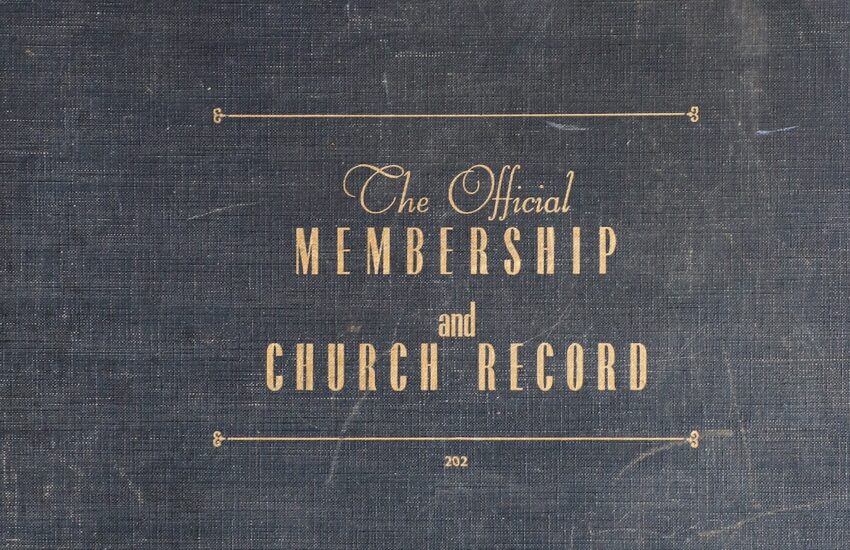A Perfunctory Theology & the Loss of the Eschaton
Once again, I find myself at the keyboard, resuming my reflections after a brief hiatus. This time, the impetus comes from the new sermon series on Eschatology that I’m currently preaching at my church. The vastness of this subject, and quite frankly the fun of studying it, prompts me to return to blogging, as it offers a space to further explore and explain my postmillennial perspective. I might be a bit of a rare bird in these parts, but yes, there are postmillennial believers here in India too. And yes, we’re all Doug Wilson fans, at least the postmills I know are.
Navigating the complexities of eschatology is no small task, and I feel compelled to provide whatever guidance I can for my congregation and others who may stumble upon these thoughts. Besides, friends and fellow pastors have often nudged me to share my insights, and this is my way of hitting two birds with one stone.
Few subjects in theology provoke as much curiosity and controversy as Eschatology, or the study of end times. It’s a topic that’s often approached with apprehension, given its complexities and the divergent interpretations it inspires. But we must remember that delving into Eschatology is not merely an intellectual exercise; it’s a pursuit laden with spiritual significance and practical implications for the Christian life.
Who comes up with words like ‘perfunctory’
I’m certain I heard it first on Blog and Mablog. But if I didn’t, then all the reading I’ve been doing recently is finally paying off. According to Wikipedia, ‘perfunctory’ means carrying out an action without real interest, feeling, or effort. That’s how I’ve often felt about eschatology, and I suspect I’m not alone in that. People seem to either dive into it with wild predictions or steer clear of it altogether. Eschatology tends to attract extremes, mainly because of all the misconceptions and pitfalls surrounding it.
Throughout history, movements and individuals have arisen, claiming to possess exclusive insights into the timing and nature of Christ’s return, only to be met with disappointment and disillusionment when their prophecies fail to materialize. From the Montanist Movement to the more recent predictions of Harold Camping, the allure of predicting the end times has ensnared many into a web of false expectations and misplaced priorities.
On the other hand, there’s a whole range of views on Eschatology, from preterism to futurism (we’ll delve into these in future posts). Each of these perspectives comes with its own theological backdrop and implications. But, in the midst of this variety, there’s a risk of pushing Eschatology to the sidelines, treating it as a minor aspect of doctrine. Yet, doing so downplays its role in shaping our grasp of God’s grand design for humanity.
To overcome these hurdles, we need a good dose of discernment and a humble acknowledgement of our finite grasp on divine matters, all while standing firm in our allegiance to sound doctrine and the truths of Scripture. Neither our fixation nor our disregard for this topic can be excused. Every iota of the Bible holds weight, and as Christians, when we affirm the sufficiency of Scripture, we’re declaring that every word is vital.
Heaven and earth will pass away, but my words will not pass away.
Matthew 24:35
All Scripture is breathed out by God and profitable for teaching, for reproof, for correction, and for training in righteousness,
2 Timothy 3:16
Therefore, we don’t cherry-pick; this isn’t a smorgasbord (a.k.a a buffet)—it’s a hearty feast, and every morsel is nourishing for the soul.
Loving the Eschaton
In light of the complexities surrounding Eschatology, it’s essential to approach this subject with a balanced perspective—one that acknowledges both its importance and its inherent mysteries. Rather than succumbing to the allure of speculative predictions or dismissing it as irrelevant, we’re called to engage with Eschatology earnestly, seeking to glean wisdom and insight from God’s Word.
While Eschatology might conjure images of doomsday prophecies and global upheaval for some, its essence extends far beyond mere speculation about the world’s end. It delves into the entirety of God’s redemptive narrative, tracing His plan from the dawn of creation to its final fulfilment, providing us with a foretaste of the ultimate realisation of His purposes for humanity.
There’s more to Eschatology than the timing of the rapture.
This is why I started the first sermon in my series with the subject, ‘Why Eschatology Matters‘.
At the heart of Eschatology lies the hope of Christ’s return—a hope that sustains us in the face of adversity and inspires us to live lives of faithfulness and anticipation. Whether we find ourselves in seasons of abundance or times of trial, the promise of Christ’s return serves as a beacon of hope, guiding us through life’s uncertainties and anchoring our souls in the unchanging truth of God’s Word.
To show this, I turned to 1 Timothy 4:1-8,
I charge you in the presence of God and of Christ Jesus, who is to judge the living and the dead, and by his appearing and his kingdom: 2 preach the word; be ready in season and out of season; reprove, rebuke, and exhort, with complete patience and teaching. 3 For the time is coming when people will not endure sound teaching, but having itching ears they will accumulate for themselves teachers to suit their own passions, 4 and will turn away from listening to the truth and wander off into myths. 5 As for you, always be sober-minded, endure suffering, do the work of an evangelist, fulfill your ministry.
2 Timothy 4:1-8 [emphasis mine]
6 For I am already being poured out as a drink offering, and the time of my departure has come. 7 I have fought the good fight, I have finished the race, I have kept the faith. 8 Henceforth there is laid up for me the crown of righteousness, which the Lord, the righteous judge, will award to me on that day, and not only to me but also to all who have loved his appearing.
In this passage, the apostle Paul charges Timothy with a weighty responsibility, a divine injunction issued in the presence of God and Christ Jesus, who holds the authority to judge both the living and the dead. This charge isn’t merely a casual request; it’s a solemn mandate, delivered under the auspices of the Triune God. Paul, acting as an instrument of God, sets the stage, by reminding Timothy of the return of Christ, of his appearing, a truth that shapes the very essence of his charge.
Timothy’s task is clear: to preach the Word unceasingly, regardless of the season or circumstance, reproving, rebuking, and exhorting with unwavering patience and thorough teaching. This charge isn’t limited to the pulpit; it extends to every aspect of discipleship, underpinned by an eschatological mindset—a constant awareness that Jesus is coming back.
Paul warns Timothy of a time when people will reject sound doctrine, succumbing to their own desires and embracing falsehoods. Yet, amidst this spiritual decay, a healthy eschatology rooted in Scripture remains essential. Those who embrace the truth of Christ’s return will persevere in sound doctrine, while those who reject it will inevitably drift into error.
Given this charge, Timothy is encouraged to stay level-headed, persevere through hardships, share the Gospel, and carry out his ministry with dedication. These reminders aren’t just empty words; they’re rooted in the certainty of Christ’s eventual triumph and the gradual spread of His kingdom on earth, which fills endurance with hope and evangelism with a sense of purpose.
Paul’s own impending departure underscores the urgency of Timothy’s charge. As he reflects on his ministry, Paul emphasizes the eschatological context in which it was carried out—the good fight fought, the race run, the faith kept. And as he looks ahead to the reward awaiting him, he highlights the central role of Christ’s appearing—a day eagerly anticipated, cherished, and longed for by all who love Him.
From the beginning of this charge to its conclusion, Paul has the return of Christ in his mind, and the crown of righteousness belongs to all who love his appearing. The eschaton (or the final event) of eschatology is a hope that Christians love. It is a sad thing for Christians to lose sight of this truth.
How to reason with this postmillennial blogger?
I am a postmillennial. What is that?
As a preacher who peers into the future through the lens of God’s prophetic word, I don’t foresee the looming shadow of the great tribulation. Nor do I anticipate the thousand-year reign of Christ as outlined in Revelation 20, to be a future reality. I don’t subscribe to the notion that the world is spiralling into irreparable decay, awaiting a final rescue at Jesus’ second coming. And I certainly don’t believe that the fate of the world hinges on the geopolitical events surrounding the nation of Israel.
You see, my interpretation of Scripture leads me to a different understanding. I believe the great tribulation occurred in AD 70, not something we’re waiting for. And as for Christ’s millennial rule, I see it unfolding here and now, not in some distant future. And I don’t believe it to be a literal 1000 years, but a symbolic abbreviation of a very long period of time. When I pray, “Thy will be done on earth as it is in heaven,” I envision that happening in real time, as history marches forward under God’s sovereign plan—a world increasingly transformed by the power of the Gospel. I’m confident that the Great Commission will succeed in bringing nations under the lordship of Christ. And I hold to the belief that the church, not national Israel, is the true people of God—the new Israel, if you will.
In short, I’m a postmillennialist. I believe that Christ will return in his second coming after the millennium. Some of you might be familiar with the term postmillennialism, while others may be hearing it for the first time. But regardless, that’s where I stand, firmly rooted in the hope that God’s kingdom will advance and His glory will cover the earth as the waters cover the sea.
To be continued….
As part of our ongoing sermon series, I’ve opened up a Google Form for questions. Whether you’re burning with curiosity or prefer to keep things anonymous, feel free to submit your inquiries at https://bit.ly/redhill-questions. I’ll do my best to address each one as time permits.
Now, if you’re more inclined to share a statement or respond to these blog posts, don’t hesitate to drop me an email at thexpurpose@gmail.com. Who knows? Your input might just spark an engaging discussion, and we could feature it in one of our future posts.






Brilliant, thinking of starting a post millennial eschatology podcast in India.